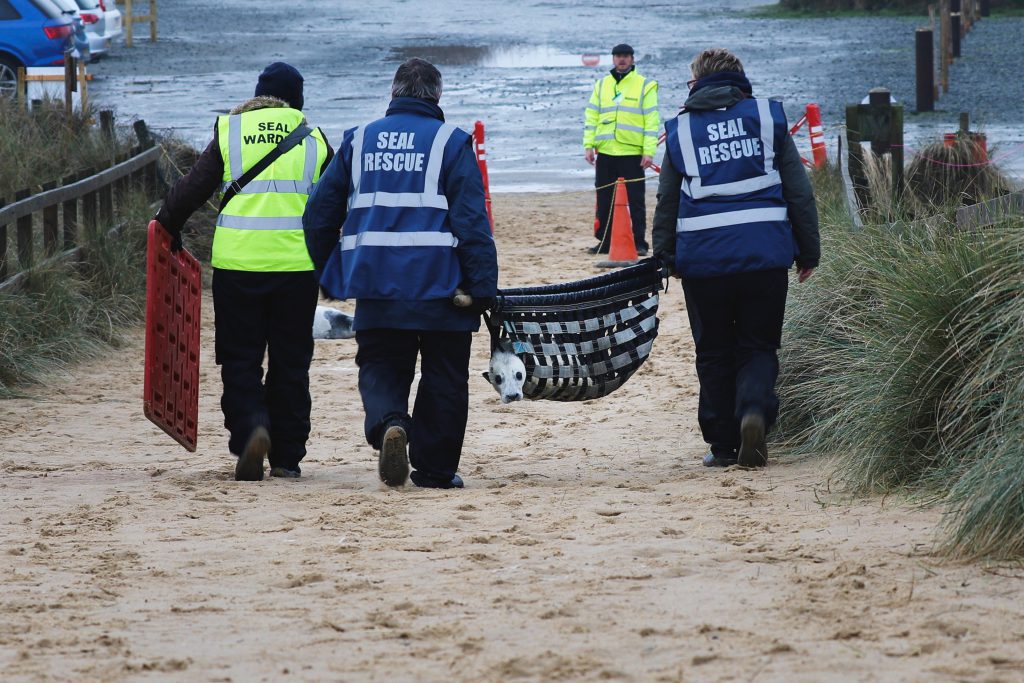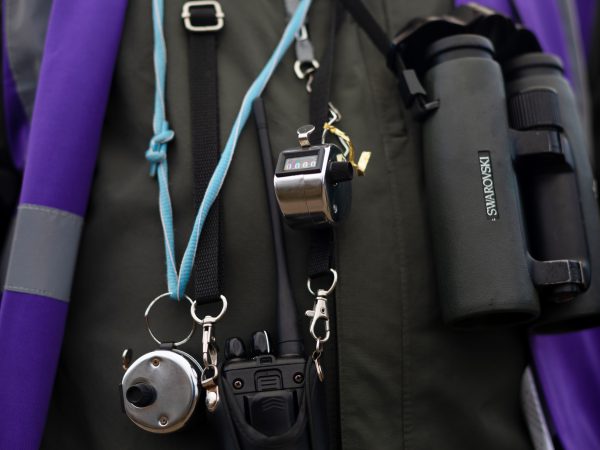The Friends of Horsey Seals Rescue team grew out of the original project set up by Natural England and the Broads Authority. Apparently, an early rescue involved an injured pup being carried off the beach in someone’s jacket.
But we have come a long way since then. Members of our rescue team are now trained by the RSPCA to handle seals safely and with the least possible trauma to the animal. On average in 2020, six rescuers attended 2.5 callouts per week.
Seals are wild animals and can be very feisty so trying to rescue one is not always straightforward. Team members need knowledge and determination. They are well equipped for the job with a special vehicle, fondly nicknamed the ‘Sealmobile’ and a Polaris six wheeled all-terrain vehicle.
They also use seal stretchers, seal nets, a stretcher carrier, seal bags and wear special identifying blue vests.
The FoHS rescue team is funded entirely by your generous donations. We also owe a debt of gratitude to all the organisations and individuals who buy or contribute towards essential equipment.
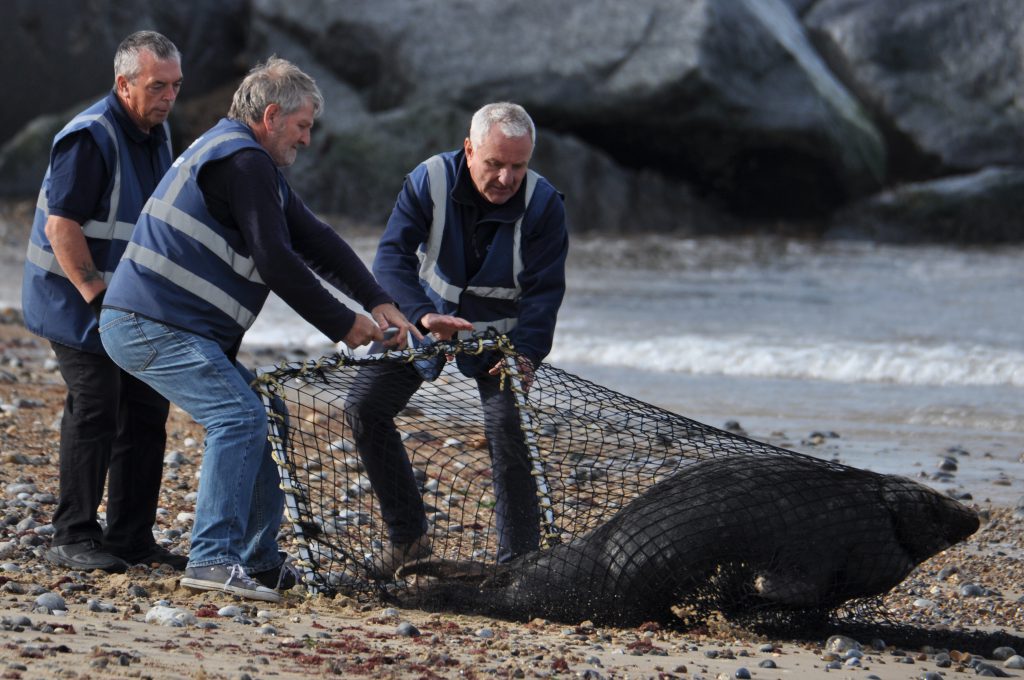
How We Do It
The FoHS Rescue Team is on standby throughout the year. It is a sad fact that we are having to rescue an increasing number of injured seals or those in distress.
We have a designated emergency number for reporting any seal in difficulty 07706 314514.
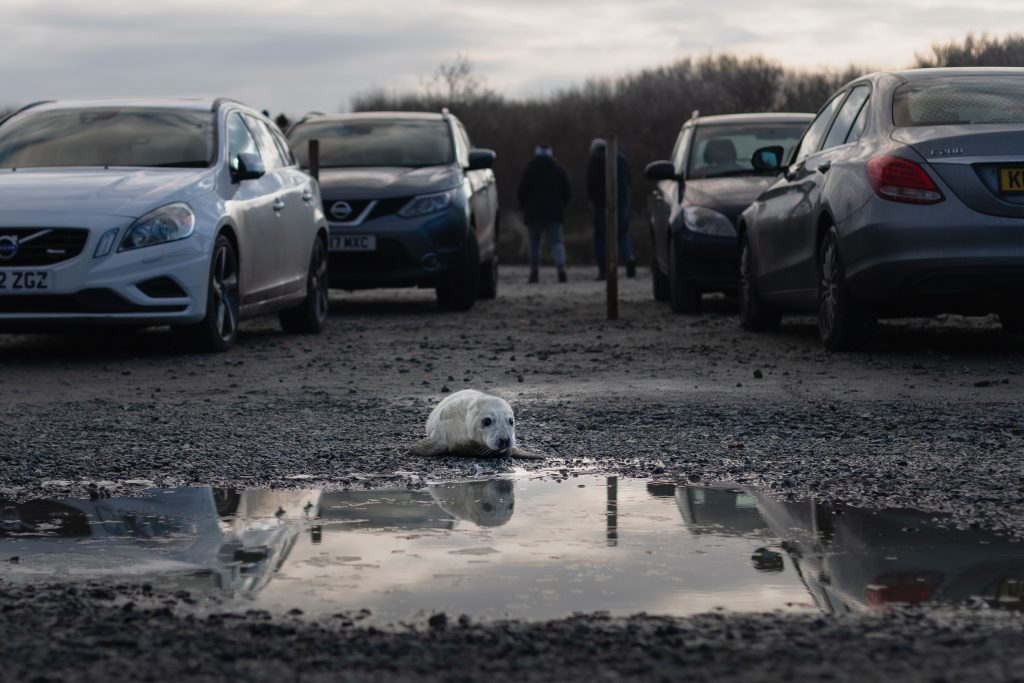
FoHS rescue team works in partnership with other seal rescue groups in Norfolk and the RSPCA. We communicate using a member only app, called Hangouts. It helps everyone share information and co-ordinate rescues by mobile phone.
During the pupping season, on average we have one callout a day and slightly fewer at other times of year. We transport the more seriously injured and sick seals to the RSPCA East Winch Wildlife Centre for treatment. It is a very busy place looking after a wide range of animals, not just seals, so spaces at East Winch can be at a premium.
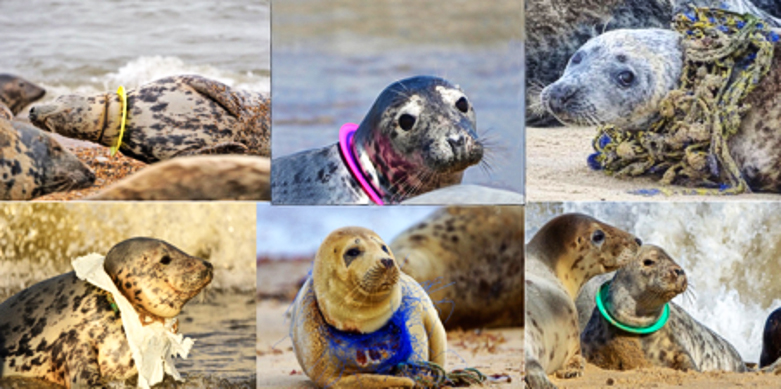
If the injuries are less serious, in consultation with RSPCA, our rescuers will try and remove any entanglement and treat minor wounds before releasing seals back onto the beach. We sometimes mark a seal by spraying a blue dot on its back, to identify it later and monitor its progress. These rescues are paid for out of the donations we receive.
